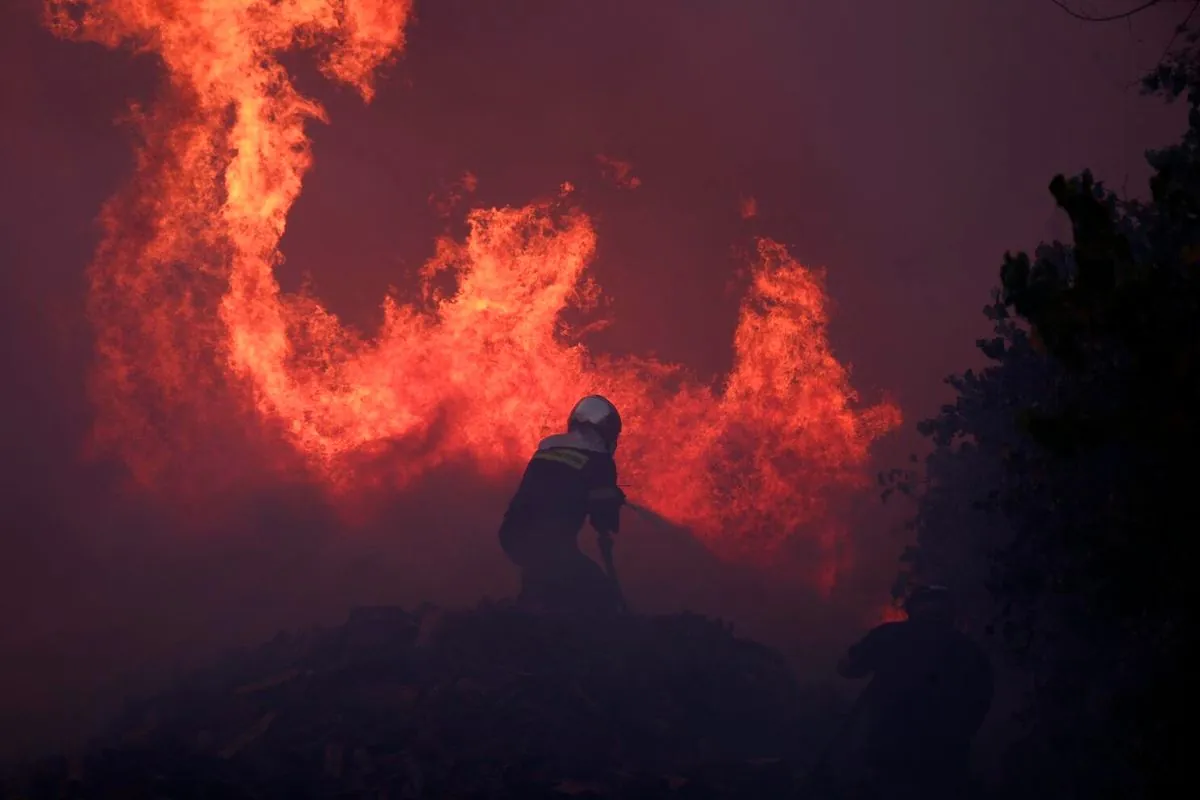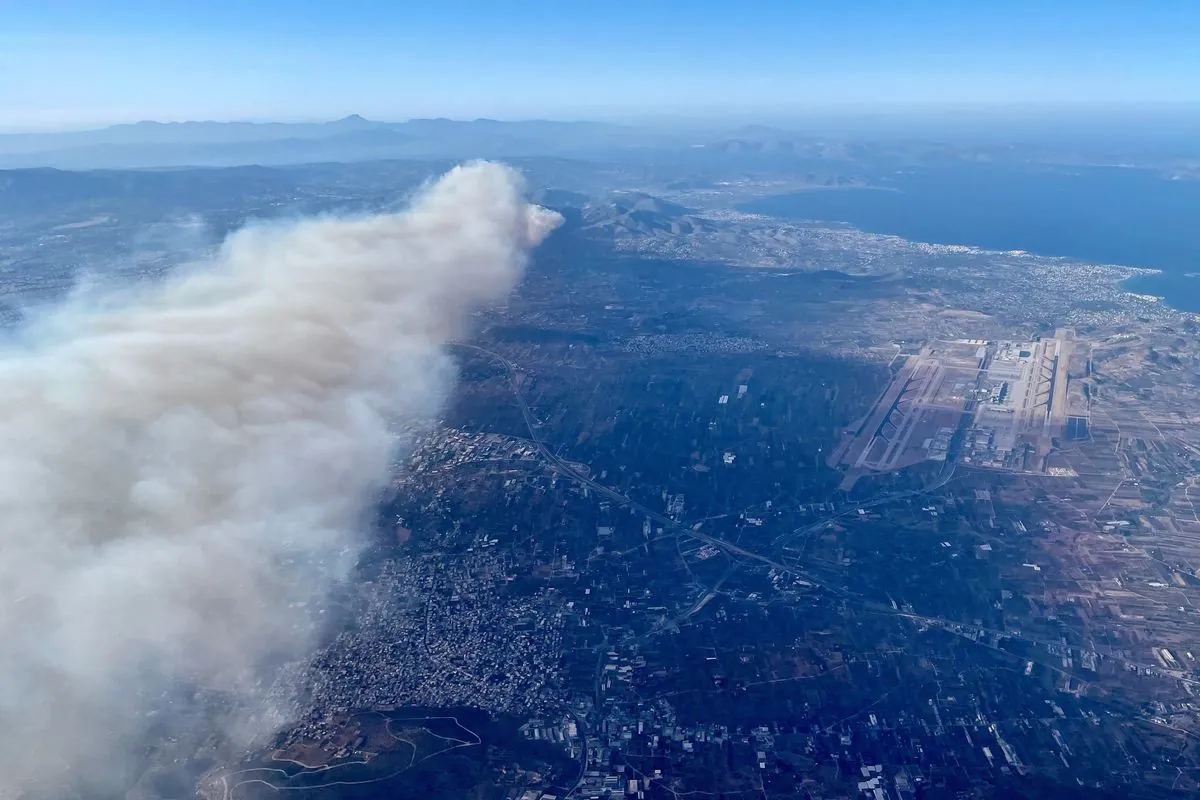Greece Battles Wildfires Near Athens as International Aid Arrives
Firefighters in Greece combat wildfires near Athens, with one fatality reported. International reinforcements arrive as authorities race to contain the blaze before winds intensify, highlighting the growing wildfire threat in the region.

Greece is currently grappling with a significant wildfire crisis, as firefighters work tirelessly to contain a blaze that has encroached upon the northern suburbs of Athens. The incident, which began on August 11, 2024, near Lake Marathon, has resulted in at least one fatality and prompted widespread evacuations.
As of August 13, 2024, firefighting efforts have shifted focus to extinguishing numerous slow-burning areas, with the fire no longer presenting active, advancing fronts. However, authorities are racing against time to control the situation before predicted wind gusts of up to 60-70 kilometers per hour threaten to reignite the flames.
International support has been crucial in combating this crisis. Reinforcements, including water-dropping aircraft, firefighters, and vehicles, have arrived from France, Italy, the Czech Republic, Turkey, Serbia, and Romania. This collaborative effort underscores the importance of the EU Civil Protection Mechanism, which facilitates cooperation in disaster response among European countries.
The wildfire's path has been particularly devastating, coursing across Mount Pendeli and descending onto Athens' northern and northeastern suburbs. Mount Pendeli, a prominent mountain range in Attica with a height of 1,109 meters, has seen its pine forests ravaged by the flames. These forests, which cover approximately 25% of Greece's forested areas, have been left tinder-dry by repeated heat waves.

The impact on local infrastructure has been significant. Three hospitals, including a children's hospital, two monasteries, and a children's home were evacuated on August 12. The fire department reported that dozens of homes and businesses have been affected, although exact numbers are yet to be determined.
Greece's vulnerability to wildfires has been exacerbated by climate change. June and July 2024 were recorded as the hottest months ever in the country, which also experienced its warmest winter. The Mediterranean region, considered a "hot spot" for climate change, is warming 20% faster than the global average. This alarming trend has contributed to a 750% increase in the average annual area burned by wildfires since the 1980s.
The current crisis brings to mind previous devastating wildfires in Greece. In 2018, a massive fire in the seaside town of Mati, east of Athens, resulted in over 100 fatalities. More recently, in 2023, wildfires claimed the lives of more than 20 people, including 18 migrants trapped by flames in northeastern Greece.
Nikos Lavranos, head of Greece's main firefighters' union, highlighted the strain on firefighting resources: "Firefighters have been working at full tilt for months. They are exhausted." The Hellenic Fire Corps, established in 1930, comprises approximately 12,500 permanent personnel and 4,000 seasonal firefighters, facing an average of 1,500 wildfires annually.
As Greece continues to battle this latest wildfire threat, the incident serves as a stark reminder of the increasing challenges posed by climate change and the critical importance of international cooperation in addressing such crises.
"We are working tirelessly to protect lives and property. The support from our international partners is invaluable in this ongoing effort to contain the wildfire and prevent further damage."


































